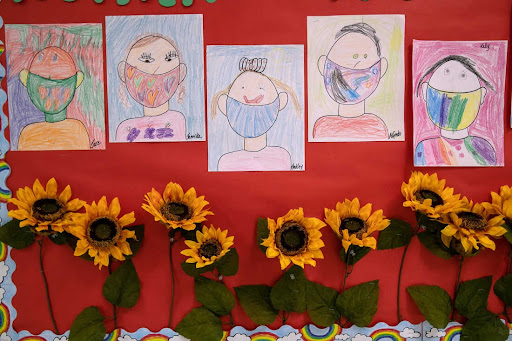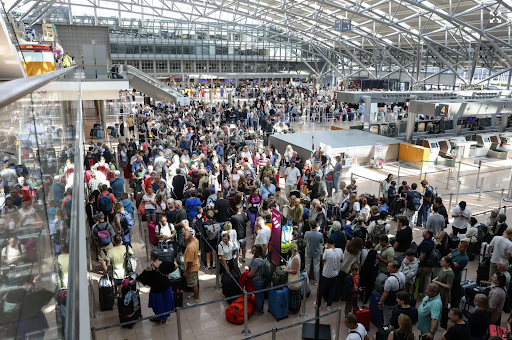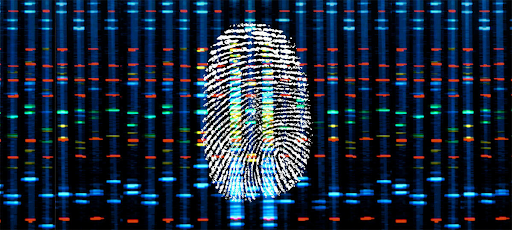How Face Masks Affect Children’s Social Skills

Drawings of children wearing masks adorn a hallway at Stark Elementary School on Sept. 16, 2020, in Stamford, CT.
These two and a half years of Covid, social distancing and mask-wearing have been extremely stressful for everyone. It has been especially difficult for young children who are learning social cues and whose brains are still developing. Recent data collected by scientists have proven that masks are beginning to have a long-term effect on children. These long-term effects include interfering with brain development, difficulty hearing and understanding speech, inhibiting social interactions, and more.
A recent article was published where a mother expressed her concern for her 6-year-old son who has a tic disorder that is intensified by the mask. Multiple scientists have spoken on the topic, including German psychiatrist and cognitive neuroscientist Manfred Spitzer, who said: “Kids need to train up their face recognition,” and they need to see full faces to learn to identify emotions as well as to learn language. “Babies were never designed just to see the upper half of the face and to infer the lower half; even adults have a hard time doing this.”
Scientists have proven that the mask is not just a physical barrier, but a mental barrier as well. NPR reported that ¨numerous scientific papers have established that it can be harder to hear and understand speech and identify facial expressions and emotions when people are wearing masks.¨
Manfred Spritzer published a scientific review on how masks affect children’s development. ¨For school-age children, Spitzer, the psychiatrist, is most concerned that masking interferes with nonverbal communication and emotional bonding.¨
Growing up, I found it easier to pick up social cues by a person’s facial expressions, whether they were mad, sad, happy or upset about something. This is where a child first learns the most important habit of heart, mind, and character: empathy. For kids growing up in that early stage of development now, I can’t imagine the struggle and confusion experienced when you can only see that person’s eyes and hear a muffled voice.
Mothers of typically developing children, like Stephanie Avanessian in Los Angeles, are worried about their kids, too. “They can never see their friends smile,” she said. “They can never see their friends frown! They’re not developing empathy. It’s taken six months for my fifth-grader to make friends because it’s so hard to tell what people are doing.”
Though as we move forward, scientists said: ¨On Jan. 25, a group of physicians and scientists announced a national campaign to “restore normalcy” in children’s lives by putting them first in line for the lifting of restrictions, including mask mandates, once the omicron wave has subsided.¨ It is hard to see children’s lives being altered by the pandemic, but as new scientific data proves, normal is clear in the near future.
Rachael Botelho ‘26, Co-Middle School Editor










